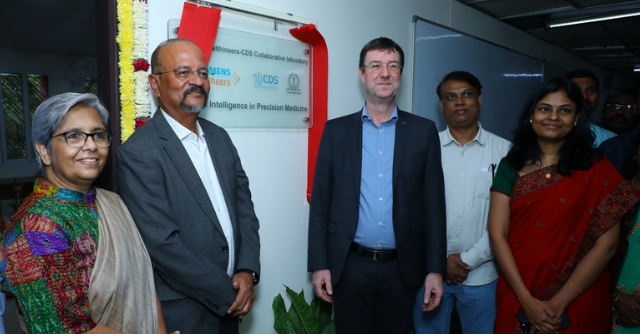
Siemens Healthineers and IISc launch AI lab to revolutionise Neurology


Siemens Healthineers, a medical technology company, and the Indian Institute of Science (IISc) have joined forces to launch the Siemens Healthineers-Computational Data Sciences (CDS) Collaborative Laboratory for AI in Precision Medicine at IISc Bangalore.
This collaborative laboratory, backed by Siemens Healthineers' Corporate Social Responsibility initiative, will focus on developing open-source AI tools. The primary goal is to automate the precise segmentation of pathological findings in neuroimaging data. The emphasis is on accurately diagnosing neurological diseases and analyzing their clinical impact on a population level.
As per the company, six M.Tech fellowships for women are also part of Siemens Healthineers' CSR initiative, with the aim of increasing female representation in artificial intelligence. Dr. Vaanathi Sundaresan from IISc's Department of CDS will lead the program.

The collaborative laboratory aims to closely collaborate with neurologists, radiologists, and Siemens Healthineers to integrate developed computational models into their regular clinical workflows.
Speaking on the partnership, Peter Schardt, Chief Technology Officer, Siemens Healthineers, said, “The collaboration with IISc solidifies our commitment to advancing precision medicine through AI using state-of-the-art, data-driven deep-learning techniques. Leveraging IISc's academic excellence and our strong core in medical imaging, smart solutions developed through this collaboration will help us ultimately save lives through precise diagnoses and evidence-based treatments”.
Prof Govindan Rangarajan, Director, Indian Institute of Science, said, “This lab marks a crucial step forward in unlocking the potential of AI for precision medicine. Together, we are accelerating the future of healthcare for everyone. This collaboration is a powerful example of how industry and academia can come together to tackle complex challenges."

Siemens Healthineers had previously showcased ideas and prototypes for generative AI at the Radiological Society of North America (RSNA) congress in November last year. The company's approach involves combining image and text applications with a chat system that loads, links, and prepares appropriate answers, reports, and images. This innovative method allows for efficient navigation between medical images and corresponding report highlights, ultimately contributing to more effective diagnostics and treatments.
